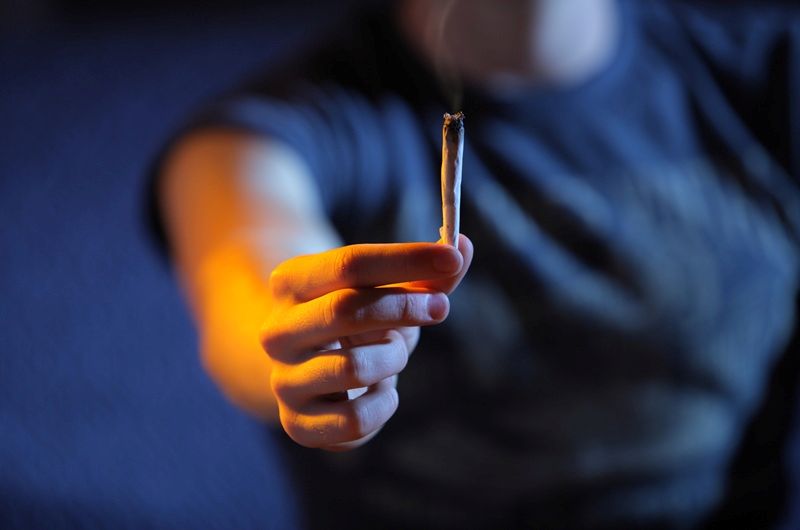Being accused of violence against a loved one can turn your life upside down. Relationships, careers, and personal freedoms are all at risk when facing legal action. Understanding the laws surrounding these charges is the first step toward protecting your rights.
Virginia law treats these offenses differently than other types of physical altercations. This article guides you through legal definitions, potential consequences, and how prosecutors handle these cases. See how protective orders, repeat offenses, and legal distinctions set these cases apart from standard assault charges.
What Does Virginia Consider Domestic Assault?
Virginia law defines domestic assault as any violent act or threat of harm directed at a family or household member. It includes physical attacks, attempts to cause injury or any action that makes someone fear for their safety. Prosecutors can file charges even without visible wounds since the law focuses on the accused’s intent and impact.
Both physical contact and verbal threats can lead to charges, depending on the circumstances. Even minor incidents may be considered domestic assault if they cause fear or distress, such as pushing or grabbing. The law applies regardless of whether the alleged victim wants to press charges, as prosecutors can proceed based on available evidence.
Not every physical altercation falls under domestic assault laws. For a case to be classified this way, the people involved must share a specific type of relationship. The law applies only when the alleged victim is a:
- Spouse or ex-spouse.
- Current or former cohabitant within the last year.
- Parent, sibling, child, grandparent, or grandchild.
- In-laws if living in the same residence.
- Co-parent of a shared child.
This distinction matters because domestic assault cases follow different legal procedures than standard charges. These legal differences impact authorities’ handling of arrests, protective orders, and court proceedings. Understanding what happens after an arrest can help you prepare for the next steps in the legal process.
What Happens After An Arrest?
Virginia follows a mandatory arrest policy for domestic assault cases. If police find probable cause, they must arrest the accused, even without the victim’s consent. Authorities often hold the accused for at least 24 hours before allowing them to post bail.
Once police make an arrest, the legal process begins with an arraignment, where the accused appears before a judge to hear the charges and enter a plea. If the court grants bail, the accused must follow specific conditions, such as avoiding contact with the alleged victim. If the judge denies bail, the accused stays in custody until trial.
During pre-trial hearings, both sides argue their cases. Defense attorneys work to reduce or dismiss the charges by challenging weak evidence or procedural mistakes. Prosecutors may offer plea agreements, allowing the accused to plead guilty to a lesser offense in exchange for a lighter sentence. If both sides disagree, the case moves to trial.
At trial, prosecutors must prove the charges beyond a reasonable doubt by presenting evidence. Unlike other assault cases, the alleged victim cannot drop the charges only the prosecution can decide. Even if the victim refuses to testify, prosecutors can still use other evidence to build their case.
The case outcome depends on the strength of the evidence and the legal arguments presented. A conviction can lead to serious legal and personal consequences, even for first-time offenders. Understanding the possible penalties can help you prepare for what’s at stake.
What Are The Penalties For A Conviction?
A conviction for domestic assault can lead to jail time, fines, and long-term legal consequences. The severity of the punishment depends on factors like prior offenses and the circumstances of the incident. Knowing the potential penalties can help you understand what’s at stake.
Class 1 Misdemeanor
A first-time domestic assault conviction falls under a Class 1 misdemeanor, bringing serious legal consequences. The court may sentence the offender to up to 12 months in jail and impose a $2,500 fine. Courts often impose protective orders and require participation in an intervention program, especially for those on probation.
A second conviction for domestic assault is also a Class 1 misdemeanor, but courts often impose harsher penalties. Sentences may include stricter probation terms, mandatory counseling, and protective orders. Judges consider prior convictions when sentencing, which may lead to more severe consequences than a first offense.
Class 6 Felony
Individuals with three or more domestic assault convictions within 20 years face a Class 6 felony. This charge carries a one- to five-year prison sentence, though some may receive a lesser sentence of up to 12 months. Courts may also issue a $2,500 fine, increasing the financial strain of a conviction.
Strangulation, serious bodily harm, or protective order violations can result in even harsher penalties. These factors may lead to upgraded charges and longer sentences. A felony record also creates obstacles in securing employment, housing, and regaining custody rights.
Facing these penalties can feel stressful, especially if you’re unsure how the legal system works. Many people in this situation have concerns about their rights, possible defenses, and what steps to take next. It’s normal to have questions, and getting clear answers can help you make informed decisions.
What Do People Ask About Domestic Assault Cases?
If you’re facing domestic assault charges, you probably have many concerns about what happens next. Legal proceedings can be stressful since they impact your future and personal relationships. Below are answers to some of the most common questions about domestic assault cases in Virginia.
What Should I Do If Someone Accuses Me Of Domestic Assault?
Stay calm and avoid discussing the case with law enforcement until you have a lawyer. Prosecutors can use anything you say against you, so speaking with legal counsel first is critical. Avoid contacting the alleged victim, as doing so may violate a protective order and result in additional charges.
Can A Protective Order Affect Where I Live?
Yes, a protective order can require you to leave a shared home, even if your name is on the lease or mortgage. The court may also restrict your return or contact with the alleged victim. Violating a protective order can result in further legal consequences, including additional criminal charges.
Can The Victim Drop Domestic Assault Charges?
No, only prosecutors can decide whether to move forward with the case. Even if the alleged victim refuses to testify, the state may continue prosecution using other evidence, such as witness statements or 911 recordings. Once prosecutors file charges, the alleged victim cannot dismiss them alone.
Are There Defenses Against Domestic Assault Charges?
Yes, depending on the case details, several legal defenses may apply. Common strategies include self-defense, false accusations, and lack of evidence, each of which can weaken the prosecution’s argument. The proper defense can reduce penalties or even dismiss the case, depending on the circumstances and available proof.
Can A Domestic Assault Conviction Affect My Gun Rights?
Yes, a conviction can impact your ability to own or possess firearms. Federal law prohibits individuals convicted of domestic violence misdemeanors or felonies from owning guns. In Virginia, violating this restriction can lead to additional criminal charges.
Understanding Virginia’s domestic assault laws can help you make informed decisions about your case. The legal system treats these charges seriously, and the consequences can significantly affect your future. If you face accusations, seeking legal representation can protect your rights and build a strong defense.
How Fairfax County Criminal Attorneys Can Defend Your Case?
Facing domestic assault charges can be a stressful and life-changing experience. The legal system moves fast, and one accusation can risk your freedom, reputation, and future. Our team at Fairfax County Criminal Attorneys in Fairfax County is here to stand by your side, protect your rights, and fight for a favorable outcome.
Every case is different, and we take the time to understand the whole picture. Maybe the accusation came from a heated argument that got out of control, or perhaps the claims against you are exaggerated or even false. We carefully examine the details, look for weaknesses in the prosecution’s case, and gather evidence that supports your defense.
We guide you through each step, explain what to expect, and ensure you never feel lost or unheard. If law enforcement violated your rights during the arrest or failed to follow proper procedures, we will help you hold them accountable. When protective orders disrupt your life, we can challenge unfair restrictions.
Your future matters, and so does your side of the story. A charge does not equal a conviction, and with strong legal representation, you can fight back. If you’re facing domestic assault allegations, contact us today we’re ready to help.
Virginia enforces strict domestic assault laws, with penalties that may include jail time, fines, and mandatory intervention programs. A conviction can also create long-term challenges, such as a criminal record and restrictions on housing or employment. Protective orders and mandatory arrests add to the legal hurdles, and prosecutors can pursue cases without the alleged victim’s support.
A strong defense can challenge weak evidence, push for reduced charges, or seek case dismissal. Legal options depend on the details of each case. For trusted defense, contact Fairfax County Criminal Attorneys for dedicated legal support and a strategy tailored to your case.






